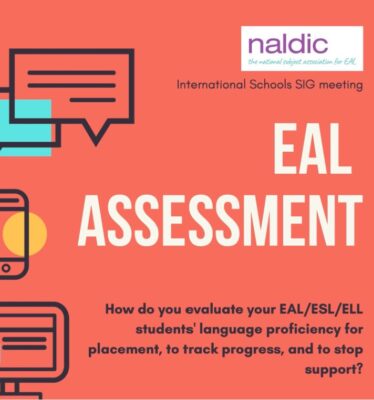 The fourth meeting of the International School SIG brought together 43 international EAL specialists to discuss assessment in their own context and in the wider community of international schools. Supportive conversations were had in a range of breakouts rooms and demand was high for a follow up session that would allow us to continue the conversation.
The fourth meeting of the International School SIG brought together 43 international EAL specialists to discuss assessment in their own context and in the wider community of international schools. Supportive conversations were had in a range of breakouts rooms and demand was high for a follow up session that would allow us to continue the conversation.
Our primary goal was to report the results of our assessment survey, issued to SIG members a few weeks previously. The results of this survey showed how eighteen international schools identify EAL students and track their progress through a wide range of assessment strategies.
A secondary aim was to use this data as the basis for small group discussions in response to three questions:
- Why do you use your current diagnostic and progress assessments?
- What’s missing?
- What do you need?
The majority of our groups agreed that while the survey data was interesting, it also indicated the urgent need for a clear system of assessment that reliably measures academic language development across all educational phases and international contexts. The fact that many schools are using EFL assessment and CEFR scales to assess EAL development in primary and secondary students points to the lack of valid and accessible assessment available in the international school market place. WIDA assessments and the BELL assessment framework are frequently used but many of our members find that neither provide the data they need to develop targeted teaching and learning strategies. Members were very keen to hear how each other were working with assessment and how successful they have been at tracking student progress. However, we found we were left with more questions than answers.
Ultimately, we see this meeting as the first step on a journey to developing a better understanding of what EAL teachers in international schools need and how we can support that by developing a consistent network that serves as a forum for the challenges of assessment, and possible solutions.
To join us, or to collaborate on this issue, sign up to our meetings here or email k.anderson@naldic.org.uk or l.caputo@naldic.org.uk

